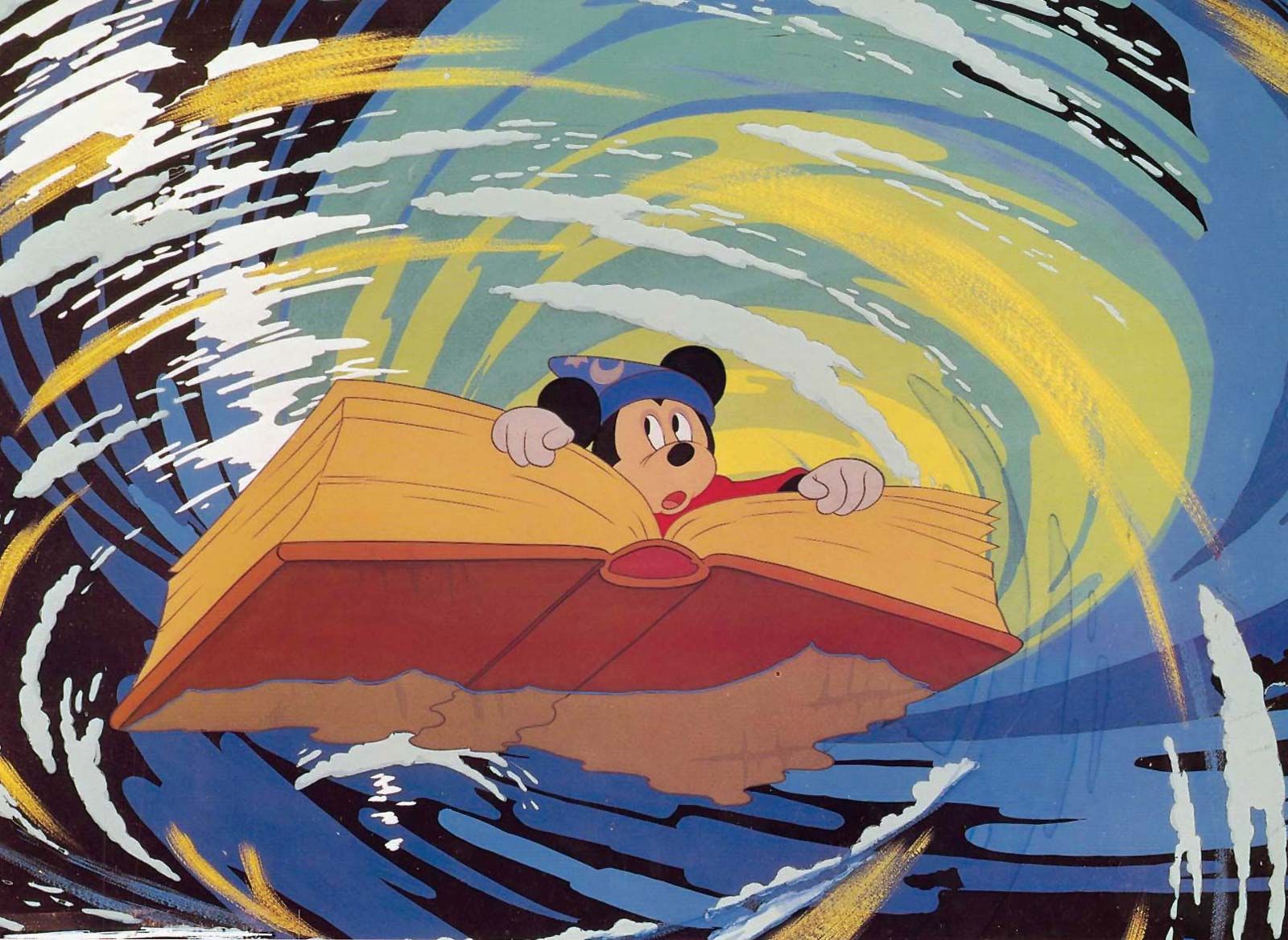Happy Birthday, Disney. A hundred years ago today, Walt and his brother Roy formed the Disney Brothers’ Studio to produce a series of short films based on Alice in Wonderland, a successor to Walt’s original Laugh-O-Gram studio. It helped shape the American imagination and transformed the art of animation. If you meet anyone who actually saw the original Snow White in the cinema – as the late Stewart Steven told me – you’ll find they recall being scared out of their wits by the scene where Snow White runs through the forest with eyes and groping hands following her. Actually, there’s an awful lot to scare the viewer in Snow White. And no one has ever bettered ‘Hi Ho, Hi Ho’, as an animation melody.
Really to appreciate the brilliance of Disney, you should revisit Fantasia
Walt was a genius. He may have been a rubbish communicator, a snitch to the Un-American Activities brigade, nakedly commercial and far from brilliant at industrial relations, but he was still a genius. There was an interesting exhibition at the Wallace Collection last year on how Walt processed the rococo motifs he saw in Armistice Paris, turning them into motifs that ended up in his films.
And to look at the early films is to see a brilliant imagination at work. The early Mickey Mouse sketch, Steamboat Willie, the first sound effect cartoon, is full of manic energy; the early version of Silly Symphonies and The Skeleton Dance are both macabre and unforgettable. Actually, Walt’s early output is worth revisiting in general. The Three Little Pigs is better and scarier than any contemporary children’s animation I can think of; the subsequent Three Little Wolves was a full-out skit of Nazism – ethnic stereotyping obviously, with the heavily Germanic little wolves, but damned effective. Some were moralistic, like the Grasshopper and the Ant (but then so was Aesop’s original), but it was cheery stuff for hard times.
Really to appreciate the brilliance of Disney, you should revisit Fantasia. That extraordinary combination of music, Elgar and Donald Duck, Saint Saens and flamingos is an example of how animation back then could be a transformative, exhilarating art form. Actually, if you compare any contemporary Disney production with Fantasia it tells you everything you need to know about its inexorable decline. How did Disney manage to become part of the making of the American child’s mind, an indispensable component of growing up? You can throw in the unscrupulous sentimentality, the ruthless commercialism and the ability to take ingenious and nuanced stories and hammer every last subtlety out of them – and like P.L. Travers, I’m thinking Mary Poppins – but that combination of emotional manipulation, menace and fundamental optimism has never been bettered. And, like I say, he was a genius animator who produced legions of other brilliant animators. Oh, and Walt had the idea of Disney World, though he didn’t call it that. His notion was based on Denmark’s Tivoli Gardens – nice and clean and family-friendly – rather than the machine for squeezing the last cent out of vulnerable and manipulable visitors it actually became.
But the brilliance of Disney didn’t survive Walt for long. There have been some fabulous Disney films after Walt – Bedknobs and Broomsticks, for one – but what modern commentators regard as its renaissance in the 1980s strikes me as radical discontinuity. I’d say the last Disney film that Walt might actually have recognised as from his stable was the animated Beauty and the Beast – all those rococo bits of furniture – with the Emma Watson version a very creditable successor. Since then – oh God. Frozen? Shoot me. As for the next treat in store from woke, diverse, inclusive Disney, the reworking of Snow White with an empowered princess and non-dwarfish dwarves tells you everything you need to know about the intellectual collapse of the genre between Walt’s time and now. Disney was better in 1937. Simple as that.







Comments